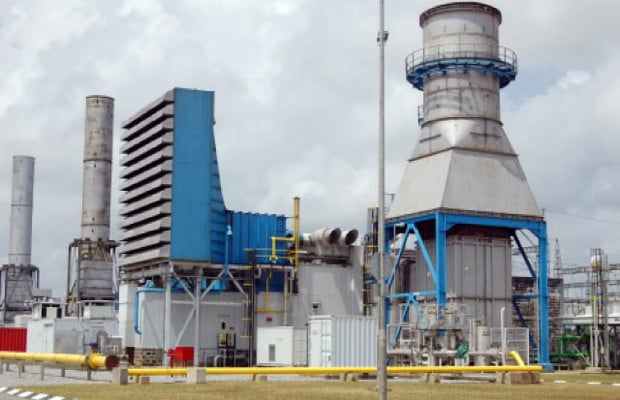Nigeria’s manufacturing sector is grappling with a profound trade deficit, as revealed by the latest data from the National Bureau of Statistics (NBS). The first half of 2025 witnessed a staggering N14.3 trillion deficit, with imports of manufactured goods reaching N15.39 trillion while exports lagged significantly at a mere N1.09 trillion. This imbalance underscores the nation’s persistent dependence on foreign-produced goods, a trend that has raised serious concerns among industry experts and policymakers. While the second quarter showed a promising surge in exports, reaching N803.81 billion, this improvement remains insufficient to offset the overwhelming influx of imports, leaving the manufacturing sector vulnerable and hindering its potential to drive economic growth. The widening deficit exerts pressure on the foreign exchange market, contributing to the depreciation of the naira and undermining the sector’s capacity to contribute meaningfully to the national economy.
The underlying causes of this deepening crisis are multifaceted and deeply ingrained within the structure of Nigeria’s manufacturing landscape. Key challenges include a lack of competitiveness in the global market, insufficient domestic supply of raw materials, exorbitant energy costs, inadequate export infrastructure, and inconsistent government policies. These factors collectively create an environment where domestic manufacturers struggle to compete with foreign counterparts, both in the domestic and international markets. The reliance on imported raw materials coupled with high energy costs places domestic producers at a significant disadvantage, impacting their ability to offer competitive pricing and hindering their capacity to expand production and meet growing demand. Furthermore, the lack of reliable infrastructure, including power supply and efficient ports, adds further layers of complexity and cost to manufacturing operations, further diminishing their competitiveness.
Compounding the problem is the government’s own procurement practices. Despite calls for supporting local industries, government contracts and infrastructure projects often favor imported goods, further exacerbating the trade deficit. This pattern of procurement undermines domestic producers and contributes to the perpetuation of the reliance on foreign goods. Additionally, limited access to export intelligence, coupled with cumbersome regulatory bottlenecks and infrastructural deficiencies at ports, further impedes the ability of Nigerian manufacturers to penetrate international markets and boost export earnings. The absence of comprehensive market information restricts their ability to identify and capitalize on export opportunities, while logistical challenges at ports create delays and increase costs, making Nigerian products less competitive in the global marketplace.
The energy crisis in Nigeria represents a particularly heavy burden on manufacturers, with energy costs accounting for up to 40% of operating expenses in some industries. The unreliable national grid necessitates reliance on expensive diesel generators, significantly increasing production costs and hindering profitability. Experts advocate for leveraging reforms that empower states and private entities to generate and distribute electricity, promoting independent power supply arrangements like those seen in industrial estates across several states. These initiatives demonstrate the potential of decentralized power generation to address the energy challenges faced by manufacturers and improve their competitiveness. However, for these initiatives to be truly effective, the Federal Government must expedite licensing processes for independent power producers and proactively resolve community disputes that often obstruct power projects.
A key policy being promoted to address the trade imbalance is the “Nigeria First” initiative, which mandates government ministries, departments, and agencies (MDAs) to prioritize locally produced goods in their procurement processes. Redirecting government expenditure towards domestic industries holds the potential to significantly reduce the trade deficit and stimulate growth within the manufacturing sector. Complementing this strategy is the proposal to increase tariffs on imported goods that have locally produced substitutes, thereby incentivizing demand for domestic products. However, the effectiveness of these measures hinges on a detailed understanding of import patterns to accurately assess their impact and ensure targeted implementation.
Despite some gains in exports during the second quarter of 2025, Nigerian goods still face substantial obstacles in international markets. Exporters grapple with high logistics costs, port delays, complex regulations, and a lack of market intelligence. The absence of readily available information about international markets and potential export destinations puts Nigerian manufacturers at a disadvantage. Furthermore, inconsistencies in product standards often result in Nigerian goods failing to meet the technical specifications required by international markets, further limiting their access and competitiveness. Government support in the form of trade missions and data provision is crucial for empowering exporters to overcome these hurdles and expand their reach in the global marketplace.
Ultimately, addressing Nigeria’s manufacturing deficit requires a collaborative effort between the government and the private sector. While government policies play a vital role in creating an enabling environment, the private sector must actively leverage these policies to create value and drive innovation. Examples of manufacturers pooling resources for independent power generation illustrate the proactive approach needed within the private sector. Similarly, forming partnerships and joint ventures in areas like renewable energy, raw material sourcing, and logistics can strengthen the manufacturing ecosystem and enhance competitiveness. Embracing such collaborative initiatives is essential for achieving sustainable growth and reducing reliance on foreign goods.
The path to revitalizing Nigeria’s manufacturing sector is challenging, but achievable with concerted action. Prioritizing domestic production, fostering a conducive business environment, and promoting private sector initiatives are crucial steps toward closing the trade deficit and unlocking the sector’s full potential to contribute to economic growth and create jobs. Addressing the root causes of the deficit, supporting domestic industries, and facilitating access to international markets will be critical for achieving a sustainable and thriving manufacturing sector in Nigeria.


